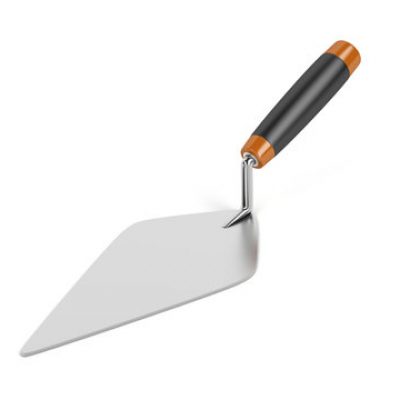Project Report For Trowel Manufacturing
Introduction
Project Report for Trowel Manufacturing is as follows.
Trowels are one of the essential tools in the construction industry. These are handheld tools that are used for various purposes, including spreading and smoothing concrete, plaster, and other construction materials. In India, the use of trowels dates back to ancient times when construction was a vital part of human life. Trowel manufacturing in India has undergone several changes over the years, and today, the country has a vast network of manufacturers and suppliers of trowels.
The introduction of trowel manufacturing in India has helped the country to produce high-quality trowels at affordable prices, which have been widely used in various construction projects. A trowel is generally used for troweling concrete surfaces during the finishing and floating procedures. Power trowels are employed in warehouses, homes, industrial constructions, airports, and garages due to the enormous loads in these areas.

Types Of Trowel Manufacturing
- Bricklayer’s trowel :- Masons use a bricklayer’s trowel, which has a flat metal blade with an extended triangular shape, to spread, level, and shape cement, plaster, and mortar.
- Pointing trowel :- A pointing trowel is a smaller variant of a bricklayer’s trowel that is used for little jobs and repair work.
- Tuck pointing trowels :- Tuck pointing trowels are long and thin tools used to pack mortar between brickwork.
- Float trowel :- A rectangular instrument used to level, smooth, or texture the top layer of hardened concrete is referred to as a finishing trowel. A corner-fitting flooring trowel has one pointed end and one rectangular end.A grout float is used to apply and smooth grout into gaps between floor and wall tile. US Navy personnel smooth freshly poured concrete with float trowels.
- Gauge trowel :- The rounded tip of the gauge trowel is used to mix measured proportions of the different elements for rapid set plaster.
- Pool trowel :- A pool trowel is a flat-bladed implement with rounded ends that is used to apply coatings on concrete, most notably pool decks.
Project Report Sample on
Trowel Manufacturing
Get Completely Custom Bankable Project Report
Market Potential Of Trowel Manufacturing
In 2022, the global trowel market is expected to be worth approximately US$ 87 million. Trowel sales are expected to grow at a 4.6% CAGR to reach US$ 137 million by 2032.
Trowels are a type of hand-held tool used in construction for spreading and shaping materials like concrete, plaster, or mortar. The Indian construction industry has been growing at a rapid pace over the past decade, and this has led to a rise in demand for construction tools, including trowels. In this essay, we will explore the market potential of trowel manufacturing in India, including the size of the market, the key players, and the challenges and opportunities that exist.
Significantly increased infrastructure development in a number of growing economies, as well as the rapid pace of industrialization in developing regions, are major factors that are creating attractive chances for market participants in the ride-on trowels sector. However, the lack of economical ride-on trowels with improved fuel economy and lever controls is a serious impediment.
Nonetheless, this could open up new opportunities for sportsmen in the coming years. Power trowels are widely used in construction around the world to smooth concrete surfaces of various sizes, primarily to meet safety rules and produce enhanced flatness. Ride-on power trowels have increased in popularity as construction tools for producing high-quality concrete surfaces through a range of finishing and floating operations.
Large construction projects requiring high-quality concrete finishes, such as those in warehouses, industrial buildings, and airports, are rapidly necessitating the employment of this mechanised equipment in a variety of countries. The demand for novel ride-on trowelling technologies for high-volume, large-area finishing operations is increasing due to the requirement for a high-tolerance, smooth concrete surface in the construction of massive warehouses.

